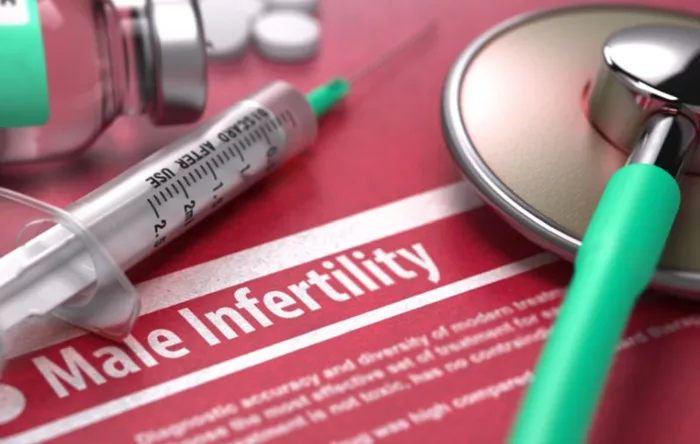Male fertility is more than just sperm count—it’s a complex dance of hormones, nutrients, and lifestyle factors. Whether you’re trying to conceive now or planning ahead, optimizing your nutritional intake is a key move. The right vitamins can improve sperm quality, motility, and even DNA integrity. Here’s a comprehensive guide to the 6 most important vitamins every man should consider for fertility, backed by real science and practical advice.
1. Vitamin C – The Sperm Protector
Vitamin C isn’t just an immune booster—it’s a powerful antioxidant that shields sperm from oxidative stress. Free radicals can damage the DNA in sperm cells, reducing both quality and function. Vitamin C helps protect against this damage, improving both sperm count and motility.
Best food sources: Citrus fruits, strawberries, bell peppers, broccoli, kale.
Recommended dose: 500–1000 mg/day, preferably in divided doses to enhance absorption.
Quick tip: Smokers and men exposed to pollution or stress may benefit from higher doses due to increased oxidative stress.
2. Vitamin E – The Sperm Enhancer
Vitamin E works hand-in-hand with vitamin C as another potent antioxidant. It improves sperm motility and morphology by protecting the sperm membrane from oxidative damage. Studies have shown that combining vitamin E with selenium can significantly improve sperm function.
Best food sources: Almonds, sunflower seeds, spinach, avocados, olive oil.
Recommended dose: 200–400 IU/day. Avoid megadoses unless advised by a healthcare provider.
Quick tip: Choose “d-alpha tocopherol” (natural form) over synthetic “dl-alpha tocopherol” for better absorption.
3. Vitamin D – The Hormone Regulator
Vitamin D is technically a hormone, and it plays a significant role in male reproductive health. It helps regulate testosterone levels and is linked to better sperm quality and libido. Many men are unknowingly deficient, especially in colder climates or if they work indoors.
Best sources: Sunlight (20 minutes/day), fatty fish, fortified dairy, egg yolks.
Recommended dose: 1000–2000 IU/day, or more if blood levels are low (check with your doctor).
Quick tip: Vitamin D3 (cholecalciferol) is more effective than D2. Pair it with fat for better absorption.
4. Zinc – The Sperm Builder
Zinc is essential for testosterone production, sperm formation, and motility. Deficiency can lead to reduced sperm count and infertility. It’s also a cofactor in hundreds of enzymatic reactions, making it a cornerstone of male fertility.
Best food sources: Oysters (nature’s top zinc source), beef, pumpkin seeds, lentils, chickpeas.
Recommended dose: 11 mg/day for adult males. Avoid exceeding 40 mg/day to prevent copper imbalance.
Quick tip: Long-term zinc supplementation should be monitored to avoid mineral competition (especially with copper).
5. Folate (Vitamin B9) – The DNA Guardian
Folate helps create and repair DNA, a vital function during sperm cell production. Low folate levels are linked to poor sperm quality and increased risk of chromosomal abnormalities. Pairing folate with zinc has shown improved sperm outcomes in clinical studies.
Best food sources: Leafy greens, legumes, citrus fruits, fortified cereals.
Recommended dose: 400 mcg/day. Some men with MTHFR gene variants may benefit more from methylated folate (L-methylfolate).
Quick tip: Avoid folic acid overload through multiple supplements. Focus on whole foods and check your labels.
6. Coenzyme Q10 – The Mitochondrial Booster
CoQ10 isn’t a vitamin but acts like one in male fertility. It energizes the mitochondria—the powerhouses of sperm cells—enhancing motility and performance. It also protects sperm from oxidative damage and supports better overall sperm function.
Best sources: Organ meats, beef, sardines, spinach, CoQ10 supplements.
Recommended dose: 100–300 mg/day of ubiquinol (the active form) is best for fertility purposes.
Quick tip: Older men and those with chronic illness or taking statins may have lower CoQ10 and benefit from daily supplementation.
Smart Supplement Strategy
Combining these vitamins into a fertility-friendly supplement stack can offer the best results, but balance is key. Mega-doses aren’t better and could be harmful. Aim to meet nutritional needs through diet first, then supplement wisely with guidance from a healthcare provider.
Choose a quality male fertility supplement that includes most of the above—especially zinc, CoQ10, and vitamins C, D, and E. Always check for third-party testing and avoid fillers or unnecessary additives.
Lifestyle Factors Matter Too
Supplements are not magic pills. Their impact is greatest when paired with a fertility-friendly lifestyle:
- Get enough sleep and manage stress.
- Maintain a healthy weight.
- Limit alcohol and quit smoking.
- Avoid excessive heat (like saunas or laptops on your lap).
- Exercise regularly, but avoid overtraining.
Consistency is everything. Sperm regeneration takes around 72–90 days, so give any changes at least 3 months before expecting results.
Final Thought
Improving male fertility is a journey of small, intentional changes. The right vitamins can tip the odds in your favor—but they’re part of a bigger picture. Start with your nutrition, support with targeted supplements, and give your body time to respond.
FAQs
Q1: How long should I take fertility vitamins before trying to conceive?
It’s best to start 3 months before trying to conceive. That’s roughly the time it takes for sperm to regenerate and mature. Starting early helps ensure the new sperm are healthier and more viable.
Q2: Can taking too many supplements hurt fertility?
Yes, excessive intake—especially of fat-soluble vitamins like E and D or minerals like zinc—can cause imbalances and side effects. Always follow recommended doses and consult your doctor if you’re taking multiple products.
Q3: Should I test my vitamin levels before supplementing?
Testing isn’t essential for all nutrients, but it’s smart for vitamin D and possibly zinc. A blood test helps identify deficiencies and personalize your supplement plan, especially if fertility has been a struggle.
Related topics:
- Best 5 Ashwagandha Supplements for Male Fertility
- What Are Best 10 Herbs for Male Fertility?
- 8 Best Multivitamin For Male Fertility


